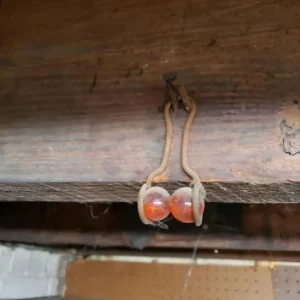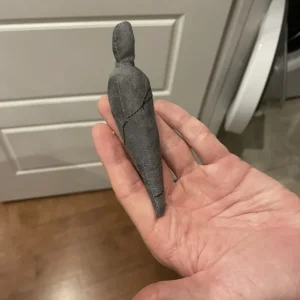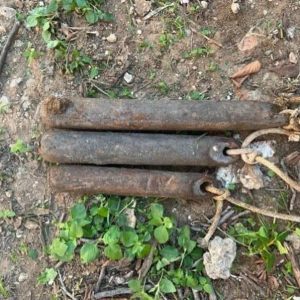It wasn’t about the flag itself. It was about what it represented to me. I’d hung it up when I first moved in, not to make any grand statement, but because it made this unfamiliar place feel a little more like home. Being the new guy on the block, I already felt like an outsider. Nobody said it outright, but you can always sense those unspoken boundaries.
Then one morning, I stepped outside and saw the empty flagpole, just the clip dangling in the breeze. The knot in my chest wasn’t just anger—it was disappointment, like something more than fabric had been taken. I didn’t say anything about it. But the next day, I found a handwritten note under my doormat. The paper was torn, the writing messy. It said someone had seen kids steal my flag, acknowledged I was the only white guy around, and insisted, “We aren’t all the same.” Taped to it was a twenty-dollar bill.
I sat on my front step for a long time, turning that note over in my hands. The kindness of it left me humbled. But when I went to buy a new flag, the cashier slipped me another note with my receipt—this one warning me not to trust too quickly. The handwriting was different, sharper. It unsettled me. Who was being honest? Who was playing games?
Days passed. I put up the new flag, though now with a quiet wariness. The neighborhood seemed normal by day—kids playing, people going about their lives—but at night, I noticed things. Headlights lingering too long. Shadows where there shouldn’t be. Then, one evening, an older man named Walter knocked on my door. He introduced himself as a new neighbor, complimented the flag, and offered to help with any repairs. Before leaving, he asked if I’d had any trouble. “Folks talk,” he said. “Kids causing mischief at night.”
A few days later, while mowing my lawn, I caught a boy named Darius watching me from across the street. I brought him water, and after some hesitation, he admitted his friends had taken the flag—just dumb kid stuff, he said. That night, I wrote a note of my own, asking for the flag back but leaving the choice to them.
The next morning, in the rain, I found it returned—neatly folded, wrapped in plastic, with an apology scribbled by three boys. Walter stopped by later, grinning like he’d known all along how it would play out. “Forgiveness goes further than punishment,” he said.
Months later, the neighborhood feels different. Darius waves when he sees me. Jamal’s mom invited me over. Even the mystery of those conflicting notes makes sense now—I think Walter was behind them, nudging me toward patience.
The lesson? People will surprise you—sometimes with cruelty, sometimes with kindness. But most will rise to the occasion if you give them the chance. Trust isn’t about being naive; it’s about leaving the door open just enough for grace to walk through.




